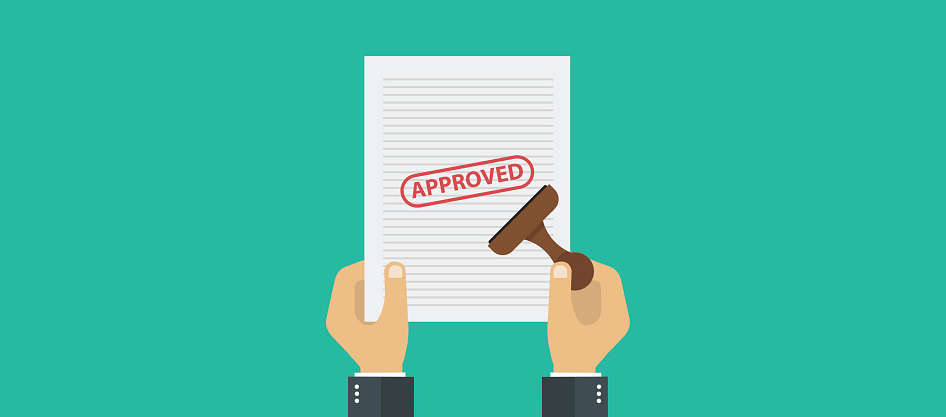
A marketing authorization application (MAA) is the validation of the claims made by a company on the basis of solid evidence. Government agencies give these authorizations in different countries or regions. Usually, companies manufacturing medicines, medical devices, and sometimes even cosmetics need this authorization to be able to sell in a particular country or region.
It is mandatory in the European Union, the United States, and recently China. In the EU, once the European Commission grants the marketing authorization, it is valid in all EU states, Iceland, Norway, and Liechtenstein.
The Chinese government revised its Drug Administration Law a couple of years ago and introduced the Marketing Authorization Holder system.
Another important pharmaceutical market, India, does not use the term “marketing authorization”. However, there is a stringent regulatory process in place to approve the import, manufacturing, sale and distribution of drugs in India.
What comes under the purview of a marketing authorization?
All the critical information and documentation on the product such as Summary of Product Characteristics (SmPC), IFUs, Patient Information Leaflet (PIL), label annex, any product updates, and clinical tests and trials need to be submitted for the marketing authorization. There are specific and strict requirements on how each of these needs to be documented and presented to the regulatory authority.
In the European Union, all of the above documentation also needs to be in the 23 official language(s) of its member states. This adds more layers of complexity and multiplies the time and effort required to obtain an authorization.
Challenges with multi-language marketing authorizations
Voluminous content: You need to submit multiple documents at the different stages of the application process for a marketing authorization. The stages could vary between different regulatory agencies. In the EU, you need documents for pre-submission, submission, and application and evaluation stages. Consider that all of these documents may need to be updated or changed if there are any changes with the product. This is not just a lot of content, but content residing in many files and possibly different file formats and in multiple languages.
Several cycles of validation by the company: The translated content needs to be reviewed by people from different departments in the company because of the nature of the content. While the translated clinical trial data will need to be reviewed by the R&D or Regulatory team, marketing may be responsible for packaging labels. Even within the same type of content, sometimes companies arrange multiple reviews. As a result, there is a lot of back and forth, taking up valuable time.
Strict timelines: The timeline for translation for marketing authorization is usually very strict. However a well-thought out process allows for coping with such turnaround.
Rejection of application: Authorizations may sometimes be refused because of unclear documentation or erroneous translation. This calls for re-doing the entire work and can become expensive, delay market entry, and cause substantial revenue loss.
Localization of the authorization: Some countries, such as Sweden, in the EU may need more documentation. These may be tougher to fulfill because they may need more specific information than the EU standard. It is obviously more time-consuming and also needs intimate domain knowledge.
How a multilingual agency can help
Multilingual agencies with expertise in marketing authorizations are an indispensable partner in your journey to the global pharmaceutical market. They add value in the following ways:
1. Centralized, professional handling of files. Usually, many pharma companies don’t use content management systems (CMSes). This makes management of documents very difficult. However, with the use of a CMS, the translation agency can keep track of content in the cloud, thus eliminating the need for manual version management and reducing human touch points.
2. Specialist translation. The translation agency needs to be a veteran in this domain, so that they can handle the processes required for translation of the marketing authorization and have the required resources to do so. As machine translation cannot be used in this work, it needs to be entirely done by translators who are subject matter experts (SMEs). As the deadlines are too short and the content too niche, there is frequently no time for any research and learning on part of the translator. They have to hit the road running.
Building a network of such translators doesn’t happen overnight. The agency has to hand-pick these translators and then make sure they stay as a part of its network. All of this needs careful and attentive project management.
3. Streamlined validation processes. Quality assessment (QA) often shows the experience and domain knowledge of the translation company. It must ensure a very high level of accuracy, as any error can amount to a rejection of the application. But quality is dynamic and subjective. So, the multilingual agency must make sure everyone agrees on the expected levels of quality. It is also critical for the pharmaceutical company to form an internal central committee that will be responsible for all documentation work for marketing authorizations. This will avoid the multiple levels of validation.
As is clear by now, an MAA entails intensive effort and expenditure. Make sure you get it right the first time by partnering with a specialist multi-language agency.
With production offices in Paris, Buenos Aires, and Bangkok, and commercial offices in London and Vancouver,
at Lexcelera, we’re available to deliver projects and answer questions 24/7—guaranteed.
Vijayalaxmi Hegde









